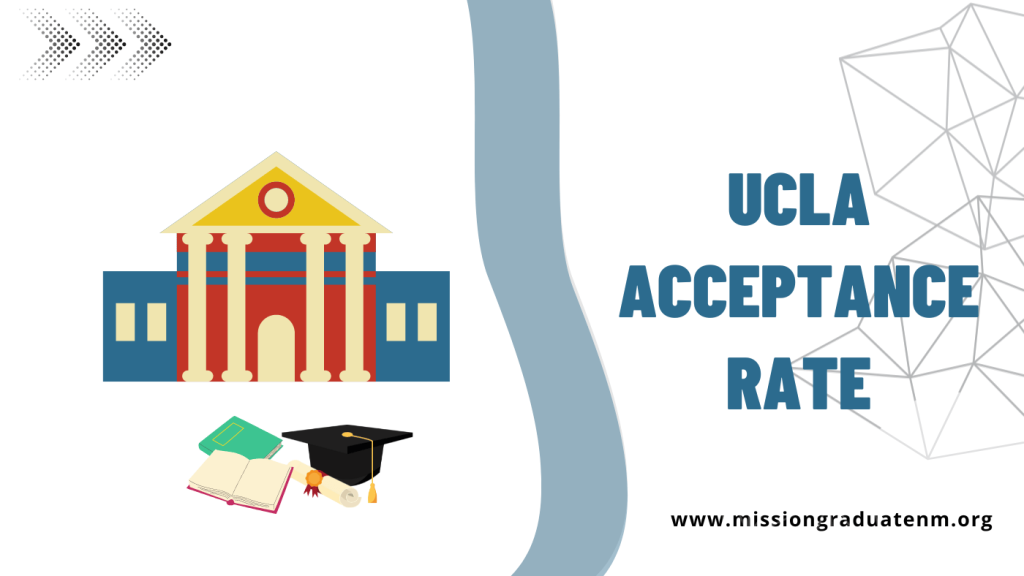Fully Funded PhD Programs can help you financially. So, are you passionate about pursuing a PhD but worried about the financial burden? The prospect of accumulating debt while spending years in advanced study can be daunting, forcing many to abandon their academic dreams.
But what if you’re missing out on life-changing opportunities simply because you’re unaware of available options? The gap between your current situation and your potential academic future might seem vast.
However, there’s hope for aspiring doctoral candidates. This post will reveal the top 15 fully funded PhD programs and universities in 2024. These institutions invest in your future, covering tuition, living expenses, and research costs
Discover below how you can pursue your academic dreams without financial stress!
Top 15 Fully Funded PhD Programs and Universities
Now that you’re eager to jump into this pool of opportunity, we’ve done some legwork to help you get started. We’ve compiled a list of the top 15 fully funded PhD programs and universities just for you.
| S.No. | University | Location | Acceptance Rate |
| 1. | Harvard University | Cambridge, MA | 4.7% |
| 2. | Standford University | Stanford, CA | 4.3% |
| 3. | Massachusetts Institute of Technology (MIT) | Cambridge, MA | 7.4% |
| 4. | University of Chicago | Chicago, IL | 6.1% |
| 5. | Yale University | New Haven, CT | 6.9% |
| 6. | Princeton University | Princeton, NJ | 5.4% |
| 7. | Columbia University | New York, NY | 6.4% |
| 8. | University of Pennsylvania | Philadelphia, PA | 7.9% |
| 9. | California Institute of Technology (Caltech) | Pasadena, CA | 4.4% |
| 10. | University of California, Berkeley | Berkeley, CA | 16.5% |
| 11. | Cornell University | Ithaca, NY | 11.1% |
| 12. | Duke University | Durham, NC | 12.7% |
| 13. | Johns Hopkins University | Baltimore, MD | 10.9% |
| 14. | University of Michigan | Ann Arbor, MI | 21.6% |
| 15. | University of Wisconsin–Madison | Madison, WI | 55.1% |
Each of these programs is a beacon of academic excellence and offers many opportunities for ambitious students like you.
What Does Fully Funded Mean?
As a fledgling academic navigating the world of higher education, you’ve probably stumbled across the term “fully funded.” But what does it mean in the context of a PhD program? “Fully funded” means that all necessary funds or resources have been secured for a particular project or initiative, such as a scholarship or a research project.
In simple terms, a fully funded PhD program is one where your university or institution waives off your tuition costs and provides you with a stipend, typically sufficient to cover your living expenses.
Think of it as a salary for your hard work, dedication, and contribution to your field of study. You get to devote your time and energy to your research without the constant stress of financial constraints. You’re being paid to learn, explore, and innovate.
But remember, like everything else, these programs are not just lying around in abundance. They’re competitive and require dedication and perseverance to earn. But for the right candidate, they’re worth their weight in gold.
How to Enroll in a Fully Funded PhD Program?
Alright, so you’re convinced. A fully funded PhD is your ticket to academic and professional success. But how do you get one of these golden tickets? It’s not as simple as strolling through the gates of a university, hand outstretched, and asking for one. It requires research, preparation, and a sprinkle of strategy. Here’s how you do it.
1. Research

The first step is to become an investigative scholar. Go down the rabbit hole of universities and institutions offering fully funded programs in your field of interest. Look into the specifics of these programs, the subjects offered, the research facilities, the faculty, and the past accomplishments of the department. Read about the experiences of alumni, current and past students. This preliminary research is crucial to ensure you’re not going into this journey blindfolded.
2. Application process

Once you’ve compiled a list of potential fully funded programs, it’s time to embark on the application journey. This process isn’t just about filling out a form and clicking the ‘Submit’ button. It’s a careful compilation of your achievements, skills, and aspirations. It’s your chance to showcase why you’re the perfect fit for the program and how you can contribute to the academic community.
Remember, each university will have its specific application guidelines. It’s not a one-size-fits-all scenario. So, read the instructions carefully, double-check your application, and ensure you’re showcasing your best self.
3. Interviews
You’ll be shortlisted for an interview if you’ve done everything right and the stars are in your favor. This is the moment to let your personality shine through. It’s your opportunity to showcase your academic achievements, intellectual curiosity, passion, dedication, and commitment to your chosen field.

Prepare for this interview as you would for a job interview. Brush up on your subject knowledge, stay updated with the latest developments in your field, and be ready to discuss your previous research experiences. Most importantly, be genuine and enthusiastic.
Admission Requirements for a Fully PhD Program
Before you rush headlong into this journey, you need to understand the admission requirements for a fully funded PhD program. It’s not a lottery ticket that anyone can buy. It’s an opportunity earned through merit and dedication. Here’s what you need:
1. Academic qualifications

This one’s a given. To apply for a PhD program, you must have a solid academic background. Most programs require at least a Bachelor’s degree in a related field, but some may ask for a Master’s.
2. Language proficiency

For those whose first language isn’t English, proving your proficiency in the language is crucial. You may need to take a standardized test like TOEFL or IELTS and meet the required score set by the university.
3. Letters of recommendation
A letter of recommendation is a document written by someone who knows you well, such as a teacher, employer, or mentor, that attests to your skills, abilities, and character and recommends you for a particular opportunity, such as a job, scholarship, or program.
For admission to a PhD program, letters of recommendation are often required. These letters can give the admissions committee valuable insight into your academic and personal qualities and help them decide if you would be a good fit for the program.
Can You Earn a Free PhD Degree Online?
It’s the digital age! Everything from shopping to socializing has moved online, and education is no different. The increasing popularity of online degrees might have you wondering if you can snag a PhD degree online that is fully funded. Let’s delve into that.
Online vs. traditional PhD
Online and traditional PhD programs could be twins with different personalities. While the core essence, i.e., the quality of education, is designed to be equal in both, the experience can vary greatly.
An online PhD allows you to manage your time at your convenience. You can learn at your pace, in your space. It’s a blessing for those who wish to juggle work or family responsibilities alongside their pursuit of a PhD.
On the other hand, a traditional PhD program provides you with a campus experience, a community of like-minded scholars, and more immediate access to your faculty and resources.
Neither is inherently better. It’s all about what suits your needs and lifestyle better.
| Aspect | Online PhD | Traditional PhD |
| Format | Primarily virtual | In-person, on-campus |
| Flexibility | More flexible schedule | Fixed schedule |
| Interaction | Limited face-to-face interaction | Regular in-person interactions |
| Resources | Digital libraries, virtual labs | Physical libraries, on-site labs |
| Networking | Mostly online networking | In-person networking opportunities |
| Cost | Often lower tuition and fees | Typically higher costs |
| Time to completion | May be faster | Often takes longer |
| Accreditation | Ensure proper accreditation | Generally well-established |
| Research opportunities | May be limited | Usually more extensive |
| Teaching experience | Limited or virtual | Often includes on-campus teaching |
| Perception | Improving, but may face skepticism | Generally well-regarded |
Accreditation
Now, before you dash off to enroll in an online PhD program, here’s a word of caution: ensure the program is accredited. In the vast world of online education, not every program is what it claims to be. Accreditation ensures that your program meets specific quality standards and that your degree will be recognized and valued. A PhD is a significant investment of time and effort; you wouldn’t want to pour it into a program that doesn’t hold up in the academic or professional world.
Conclusion: PhD Programs
The journey to a PhD can seem daunting, with the looming mountain of financial constraints adding to the challenge. But a fully funded PhD program can be your sherpa, guiding you through the tough terrains and taking the weight of financial worries off your shoulders.
You can find a program that pays you to pursue your passion through diligent research, careful application, and meeting the required criteria. Whether it’s in the traditional face-to-face setting or the virtual classrooms of an online course, your dream of a PhD can become a reality without breaking the bank.
Remember, it’s not just about getting a degree. It’s about immersing yourself in a field of knowledge, contributing to it, and growing as a scholar and individual.
So, are you ready to dive into this world of funded learning opportunities?
FAQs: PhD Programs
Absolutely! A part of your stipend might be in exchange for a teaching or research assistantship. It’s a great way to gain experience while studying.
Quite competitive. After all, they’re offering quality education without the tuition fee and providing a stipend. So, they seek the most dedicated, passionate, and promising students.
Certainly! Universities welcome diversity in their student population. However, international students might have additional application requirements.
This can depend on the laws in your specific location. It’s always a good idea to consult with a tax professional.
Many programs offer health insurance coverage, but it’s not a blanket rule. You’ll need to check the specifics of each program.

